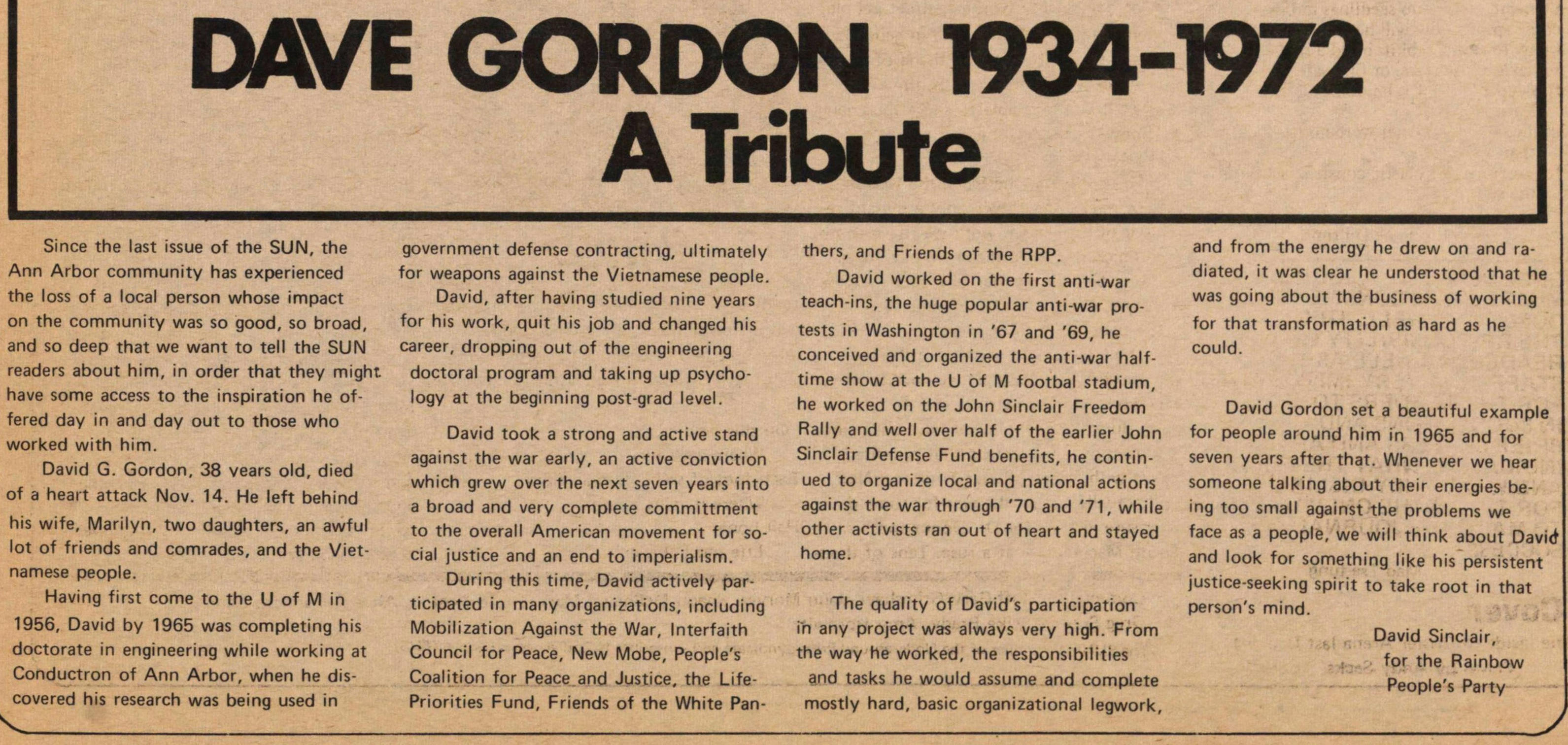Dave Gordon 1934-1972 A Tribute

Since the last issue of the SUN, the Ann Arbor community has experienced the loss of a local person whose impact on the community was so good, so broad, and so deep that we want to tell the SUN readers about him, in order that they might have some access to the inspiration he offered day in and day out to those who worked with him.
David G. Gordon, 38 years old, died of a heart attack Nov. 14. He left behind his wife, Marilyn, two daughters, an awful lot of friends and comrades, and the Vietnamese people.
Having first come to the U of M in 1956, David by 1965 was completing his doctorate in engineering while working at Conductron of Ann Arbor, when he discovered his research was being used in government defense contracting, ultimately for weapons against the Vietnamese people.
David, after having studied nine years for his work, quit his job and changed his career, dropping out of the engineering doctoral program and taking up psychology at the beginning post-grad level.
David took a strong and active stand against the war early, an active conviction which grew over the next seven years into a broad and very complete commitment to the overall American movement for social justice and an end to imperialism.
During this time, David actively participated in many organizations, including Mobilization Against the War, Interfaith Council for Peace, New Mobe, People's Coalition for Peace and Justice, the Life-Priorities Fund, Friends of the White Panthers, and Friends of the RPP.
David worked on the first anti-war teach-ins, the huge popular anti-war protests in Washington in '67 and '69, he conceived and organized the anti-war halftime show at the U of M football stadium, he worked on the John Sinclair Freedom Rally and well over half of the earlier John Sinclair Defense Fund benefits, he continued to organize local and national actions against the war through '70 and '71, while other activists ran out of heart and stayed home.
The quality of David's participation in any project was always very high. From the way he worked, the responsibilities and tasks he would assume and complete mostly hard, basic organizational legwork, and from the energy he drew on and radiated, it was clear he understood that he was going about the business of working for that transformaron as hard as he could.
David Gordon set a beautiful example for people around him in 1965 and for seven years after that. Whenever we hear someone talking about their energies being too small against the problems we face as a people, we will think about David and look for something like his persistent justice-seeking spirit to take root in that person's mind.
David Sinclair,
for the Rainbow People's Party
Article
Subjects
Freeing John Sinclair
Old News
Ann Arbor Sun